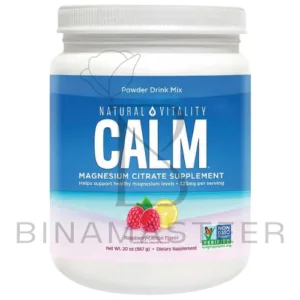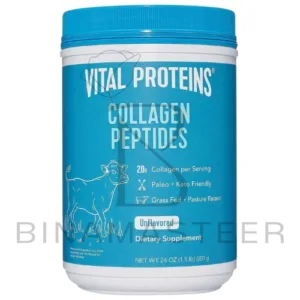news
Collagen Supplements: The Ultimate Guide to Youthful Skin, Hair, and Joints
In the quest for ageless beauty and robust health, one word has been gaining unprecedented attention: collagen. Often hailed as the “fountain of youth” in a jar, this protein is the most abundant in our bodies, making up the structural framework of our skin, bones, muscles, tendons, and ligaments. However, as we age, our natural collagen production declines, leading to visible signs like wrinkles, sagging skin, and joint discomfort. This has fueled the booming market for collagen supplements, which promise to reverse the clock from the inside out. This comprehensive guide will demystify collagen, explain its role in the body, explore the science behind supplementation, and provide you with a clear roadmap to navigate the vast world of collagen products.

What is Collagen and Why is it So Important?
Think of collagen as the “glue” that holds your body together. It’s a fibrous, structural protein that provides strength, elasticity, and integrity to various tissues. The word “collagen” comes from the Greek word kólla, meaning “glue.”
- Skin Health: Collagen is the main component of the dermis, the layer of skin beneath the epidermis. It gives skin its firmness and elasticity, helping to reduce the appearance of wrinkles and fine lines.
- Joint and Bone Health: Collagen is a key component of cartilage, the rubbery tissue that cushions our joints. It also makes up a significant portion of our bones, giving them strength and a flexible framework.
- Muscle Mass and Strength: While not as abundant as in other tissues, collagen is found in muscle tissue and is essential for muscle function and repair.
- Hair and Nail Strength: Collagen provides the amino acids necessary to build keratin, the protein that makes up our hair and nails.
The Decline of Collagen: The Aging Process
Beginning in our mid-20s, our body’s natural collagen production starts to slow down. This decline is a major contributor to the signs of aging we associate with getting older.
- Visible Signs: As collagen decreases, the skin loses its plumpness and starts to sag. Wrinkles and fine lines become more pronounced.
- Internal Signs: Cartilage can become thinner, leading to joint stiffness and pain. Bones may become more brittle.
- Lifestyle Factors: Sun exposure, smoking, a poor diet, and high sugar consumption can accelerate the breakdown of collagen.
The Science of Collagen Supplements
The concept of taking collagen orally to benefit your skin and joints seems straightforward, but the science is a bit more nuanced. When you consume collagen, your body doesn’t absorb it as a whole protein. Instead, it breaks it down into its constituent amino acids and short chains of amino acids called peptides.
- Bioavailability: The key to an effective collagen supplement is its bioavailability—how well your body can absorb and utilize it. This is why most supplements use hydrolyzed collagen or collagen peptides, which have been broken down into smaller, more easily absorbed particles.
- Mechanism of Action: The peptides from the supplement don’t directly rebuild collagen where you need it. Instead, they act as a signal to your body’s cells (called fibroblasts) to ramp up their own natural collagen production. This is often referred to as “signaling.”

Types of Collagen Supplements
Collagen comes from various sources, and each source provides different types of collagen, each with a slightly different function.
- Type I: The most abundant type of collagen in the body. It’s found in skin, tendons, bones, and organs. Bovine (from cows) and marine (from fish) collagen are rich in Type I.
- Type II: Found primarily in cartilage. This type is best for joint health. Chicken collagen is a common source.
- Type III: Found in skin, muscles, and blood vessels. It often coexists with Type I collagen. Bovine collagen is a good source of both Type I and Type III.
Common Sources:
- Bovine Collagen: Sourced from cowhide, it’s rich in Type I and III collagen. It’s the most widely used and is excellent for skin and bone health.
- Marine Collagen: Sourced from fish skin and scales, it’s rich in Type I collagen. It’s considered to have a superior absorption rate and is highly sought after for skin health.
- Chicken Collagen: Sourced from chicken cartilage, it’s rich in Type II collagen, making it ideal for joint support.
- Vegan Collagen Alternatives: While true collagen is an animal product, many brands offer “vegan collagen boosters” which contain the amino acids and co-factors (like Vitamin C) that your body needs to produce its own collagen.
Choosing the Right Collagen Supplement
With so many options on the market, choosing the right supplement can feel overwhelming. Here are some key factors to consider:
- Type of Collagen: Determine your primary goal. For skin, choose a supplement with Type I and III collagen. For joint pain, choose Type II.
- Form: Collagen comes in powders, pills, and liquids. Powders are versatile and can be mixed into drinks and food. Pills and liquids are convenient for on-the-go.
- Added Ingredients: Look for products that include complementary nutrients like Vitamin C, zinc, and hyaluronic acid, as they work synergistically with collagen.
- Third-Party Testing: Choose a product that is third-party tested (e.g., by NSF or USP) to ensure it is pure, safe, and contains the stated ingredients.

How to Incorporate Collagen into Your Routine
Collagen supplements are easy to add to your daily life.
- In Your Morning Coffee or Smoothie: Collagen powder is tasteless and odorless, making it a perfect addition to your morning ritual.
- In Soups and Stews: For a savory option, mix collagen powder into soups, stews, or sauces.
- Take as Directed: If you’re using capsules or liquid, simply follow the dosage instructions on the label.
Conclusion: A Proactive Approach to Health and Beauty
Collagen supplementation is not a magic cure, but it is a powerful tool in a proactive approach to health and beauty. By providing your body with the building blocks it needs, you can support the integrity of your skin, the flexibility of your joints, and the strength of your hair and nails. Paired with a healthy diet, regular exercise, and a good skincare routine, collagen supplements can help you age gracefully from the inside out. Remember, the goal is not to stop the clock, but to support your body’s natural ability to maintain its structure and vitality for years to come.

